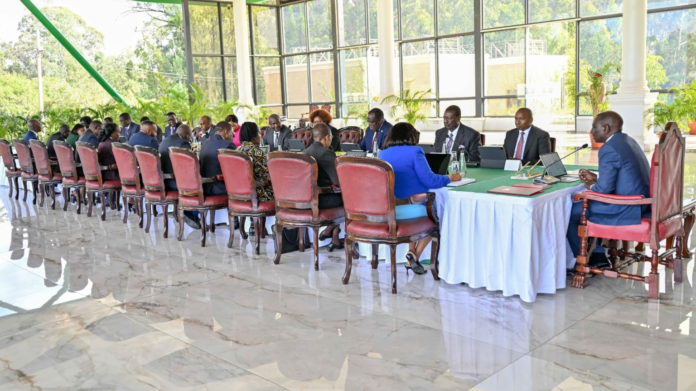State officers and civil servants risk fines of up to KSh 10 million or a 10-year jail term if found obstructing a President-elect from assuming office.
This is according to a new bill that seeks to impose harsh penalties on those attempting to disrupt the transition of power after presidential elections.
The Cabinet, during its final meeting of the year on Tuesday, approved the Assumption of Office of President and Transition of Executive Authority Bill, 2024.
“The proposed law aims to seal gaps and ensure smoother and more unified Presidential transitions in Kenya,” read a statement from the meeting.
The bill consolidates procedures for assuming office and transferring executive authority into a single legislative framework and now heads to Parliament for debate and consideration.
One of the key provisions in the proposed law includes granting the President-elect and Deputy President-elect the same security detail as the sitting President and Deputy President. Notably, the handover of instruments of power would not require the presence of the outgoing President, accounting for scenarios where the outgoing head of state is unavailable during the swearing-in ceremony.
“In such cases, the handover of instruments of power will be omitted without affecting the validity of the swearing-in process,” the statement added.
The legislation comes in the wake of a contentious transition during President William Ruto’s takeover from his predecessor, Uhuru Kenyatta. Allegations of sabotage and attempts to frustrate the President-elect’s team marred the process. Ruto’s camp at the time raised concerns over insufficient security briefs, lack of cooperation from the national security team, and resistance from the government printer to issue the gazette notice confirming Ruto’s election.
Key members of the transition committee, including former Interior CS Fred Matiang’i, were accused of stonewalling efforts by Ruto’s team, forcing his allies��Justin Muturi, Kithure Kindiki, Davis Chirchir, Alfred Mutua, Ababu Namwamba, Gladys Shollei, and Kipchumba Murkomen—to intervene and streamline preparations.
The proposed law also addresses critical gaps, including provisions for handling vacancies in the offices of Cabinet Secretaries (CSs) and Principal Secretaries (PSs) during the transition. Under the new framework, CSs and PSs will remain in office until new appointments are made by the incoming administration to ensure continuity of governance.
Additionally, the bill outlines the role of the President-elect in nominating members to the Assumption of Office Committee and establishes a Transition Centre to coordinate the transfer of power. This centre would oversee key arrangements such as military displays, invitations to foreign heads of state, and the swearing-in ceremony.
The Kenya Kwanza administration has previously sought to streamline transitions by introducing reforms, including allowing the President-elect to nominate six members to the transition team and incorporating the Defence PS and national security adviser into the committee.
The proposed law underscores the government’s commitment to avoiding the challenges witnessed during past transitions and ensuring a seamless handover of executive authority in the future.







